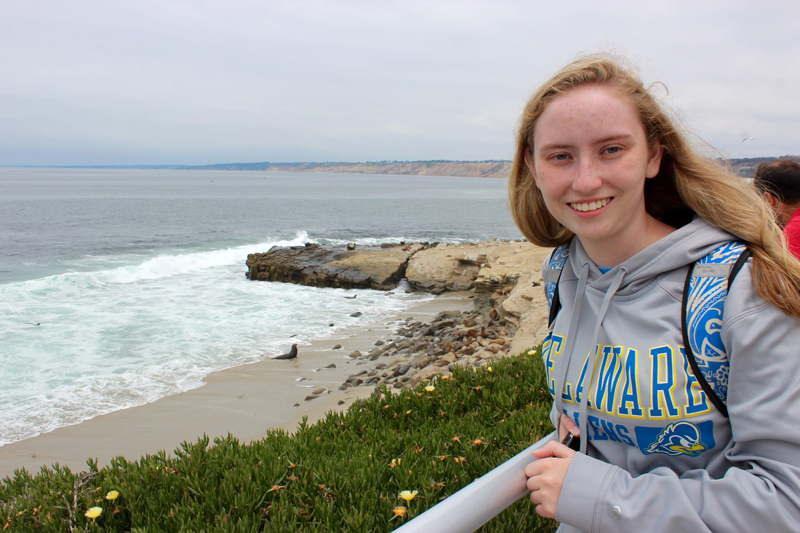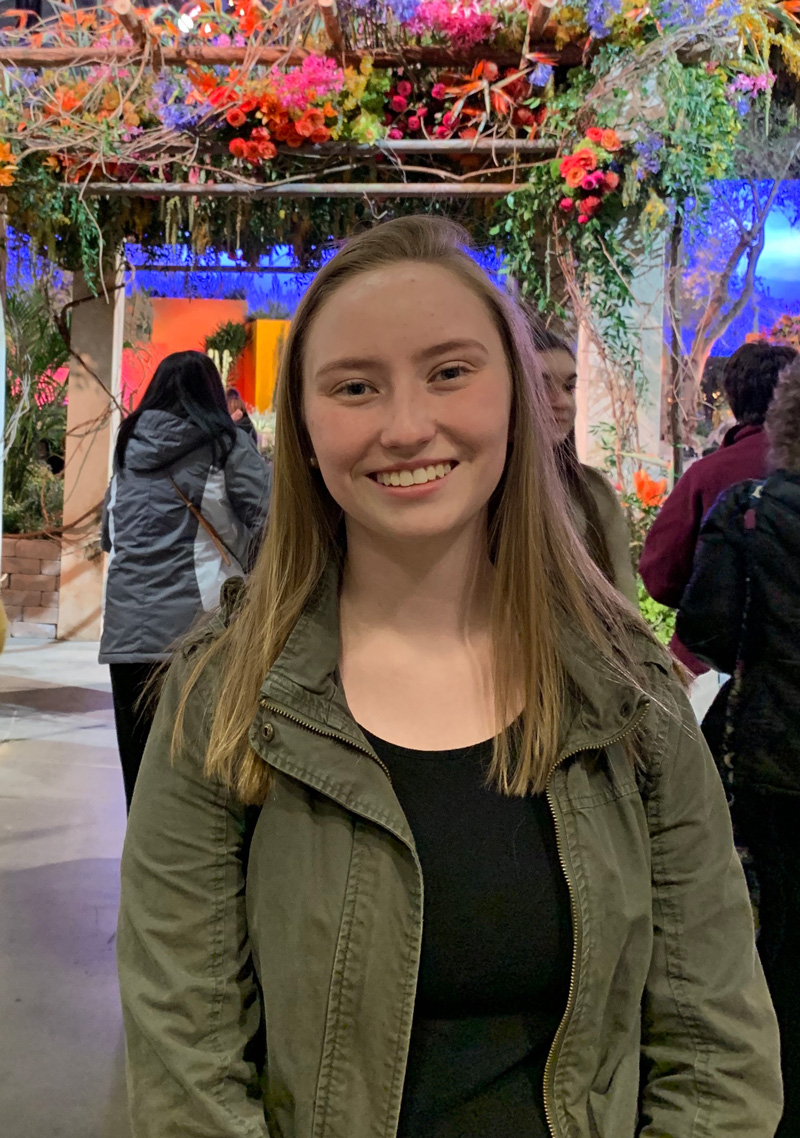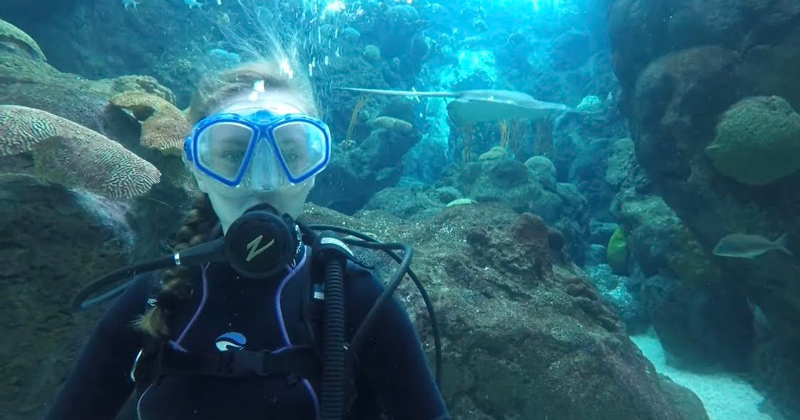


Studying Beaufort Belugas
Photo by courtesy of Renea Briner September 25, 2020
UD undergraduate student reflects on journey to UD, Summer Scholars research experience
Growing up 45 minutes from the University of Delaware, Renea Briner remembers visiting the campus during her freshman year of high school and hearing about the exciting opportunities at UD’s College of Earth, Ocean and Environment (CEOE) from Keeley Powell, senior assistant dean of student services in CEOE, and Joanna York, associate professor in CEOE.
That initial impression stuck with her and during the summer of her junior year of high school, she participated in UD’s Taking an Interest in Delaware’s Estuary (TIDE) Camp, which was a 13-day instructional camp offering classroom learning, hands-on field experience and an overnight immersion into marine science that afforded participants time at both UD’s Newark campus and the Hugh R. Sharp Campus in Lewes. TIDE Camp has been modified somewhat since Briner attended, with more options for more age groups, and is now known as ECO Camp.
After participating in TIDE Camp, Briner said that she was hooked on UD.
“I went to TIDE Camp the summer between my junior and senior year and we spent a week at the Newark campus and a week at the Lewes campus, and I just fell in love. It was amazing,” said Briner, now a UD sophomore. “After that, UD was really on my radar because I thought, living here for a semester and doing research would be amazing, and it just seemed like the perfect fit.”
Undergraduate research
Briner is majoring in marine science and psychology with a minor in Spanish, and she is also in the Honors College. During the summer of 2020, Briner worked with Miling Li, assistant professor of environmental chemistry and toxicology in UD’s School of Marine Science and Policy, studying the effects of climate change on the Beaufort Beluga food web as part of UD’s Summer Scholars program.

The Beaufort Belugas are the population of Beluga whales which live in the Beaufort Sea, north of Alaska, in the summer and the Bering Sea in the winter. New findings have shown some odd activity with these belugas in recent years.
“In 2014, they found the belugas outside their normal habitat range in the Canadian Beaufort Sea, and scientists found that their stomach contents were different than usual. They didn’t seem to be feeding on their normal prey,” said Briner. “In 2019, there was a mass mortality event of the belugas and so we’re looking to see if there are changes occurring at the bottom of the food web that correlate to climate change that is ultimately building up and impacting these belugas.”
Li said that the rapid warming in the Arctic climate has “led to dramatic changes in the Arctic marine ecosystems. The warm period since 2014 coincides with several unusual mortality events observed in a variety of marine mammals, including ice seals and whales.”
Because of the coronavirus (COVID-19), Briner had to conduct her summer research at home and was restricted to mainly conducting literature reviews of other people’s research. She said that while it made the experience a little bit more difficult, she was happy to get the opportunity, as she has always been interested in marine science but wasn’t sure exactly what she wanted to do with it in the future.
“I wanted to experience research and discover all of the fields that I could possibly go into. This summer allowed me to dip my toes into the research experience and see what it’s like,” said Briner. “When I found out Dr. Li was looking for people and was willing to work with me even though I was only a rising sophomore, that was great because I have learned a lot, and it’s opened my eyes to what research is and the collaboration behind it and how everything is interconnected.”
For example, Briner was able to explore modeling changes in the food web using a program called Ecopath with Ecosim, which is a free ecological/ecosystem modeling software suite. Having never worked with a program like Ecopath before this summer, she said learning to use the program will be beneficial in the future.

During the fall semester, Briner has continued to work with Li and other researchers studying the influences of climate change on the Beaufort beluga population.
With the Summer Scholars opportunity under her belt, Briner said that she is excited to continue with her research.
“Summer Scholars is only 10 weeks and that 10 weeks was a big learning curve for me since I had never been involved in research before. Now that I have an understanding, I’ll know what to expect,” said Briner. “The research world is a different world that you don’t really know from the outside. I read a couple papers, but I didn’t know what went on behind the scenes and all the meetings and everything, so it’s been a great experience to learn that. I’m happy and excited to continue in the future now that I have learned more.”
Contact Us
Have a UDaily story idea?
Contact us at ocm@udel.edu
Members of the press
Contact us at 302-831-NEWS or visit the Media Relations website

